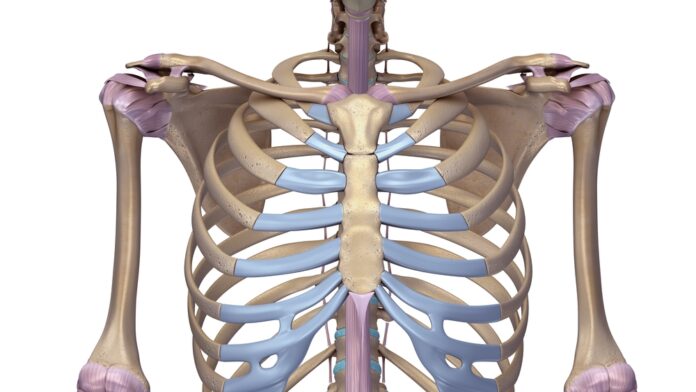Overview Of Chest Pain – Costochondritis
All but your lowest 2 ribs are connected to your breastbone by cartilage. This cartilage can become inflamed. This condition is called chest pain – costochondritis. It is a common cause of chest pain.
Commonly Associated With
Chest wall pain; Costosternal syndrome; Costosternal chondrodynia; Chest pain – costochondritis
Causes Of Chest Pain – Costochondritis
There is often no known cause of costochondritis. But it may be caused by:
- Chest injury
- Hard exercise or heavy lifting
- Viral infections, such as respiratory infections
- Strain from coughing
- Infections after surgery or from IV drug use
- Some types of arthritis
Symptoms Of Chest Pain – Costochondritis
The most common symptoms are pain and tenderness in the chest.
You may feel:
- Sharp pain at the front of your chest wall, which may move to your back or stomach
- Increased pain when you take a deep breath or cough
- Tenderness when you press the area where the rib joins the breastbone
- Less pain when you stop moving and breathe quietly
Exams & Tests
Your health care provider will take your medical history and do a physical exam. The area where the ribs meet the breastbone is checked. If this area is tender and sore, chest pain – costochondritis is the most likely cause.
A chest x-ray may be done if your symptoms are severe or do not improve with treatment.
Your provider may also order tests to rule out other conditions, such as a heart attack.
Treatment Of Chest Pain – Costochondritis
Costochondritis most often goes away on its own in a few days or weeks. It can also take up to a few months. Treatment focuses on relieving the pain.
- Apply hot or cold compresses.
- Avoid activities that make the pain worse.
- Pain medicines, such as ibuprofen (Advil, Motrin) or naproxen (Aleve), may help to ease chest pain and swelling associated with costochondritis. You can buy these without a prescription.
Talk with your provider before using these medicines if you have heart disease, high blood pressure, kidney disease, liver disease, or have had stomach ulcers or internal bleeding in the past.
Take the dose as advised by the provider. DO NOT take more than the amount recommended on the bottle. Carefully read the warnings on the label before taking any medicine.
You may also take acetaminophen (Tylenol) instead if your provider tells you it is safe to do so. People with liver disease should not take this medicine.
If your chest pain is severe, your provider may prescribe stronger pain medicine.
In some cases, your provider may recommend physical therapy.



